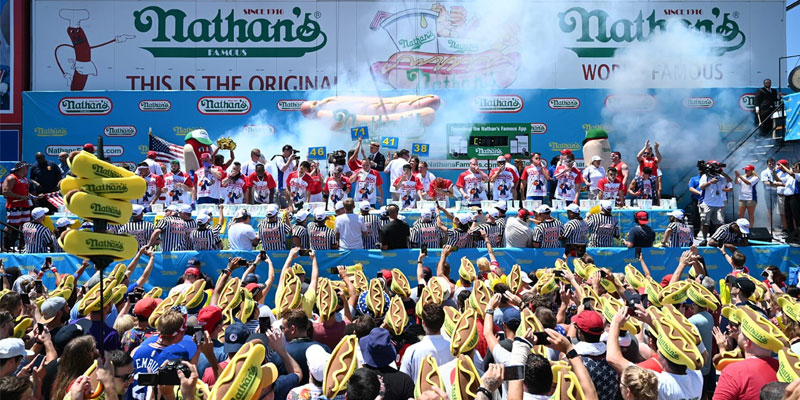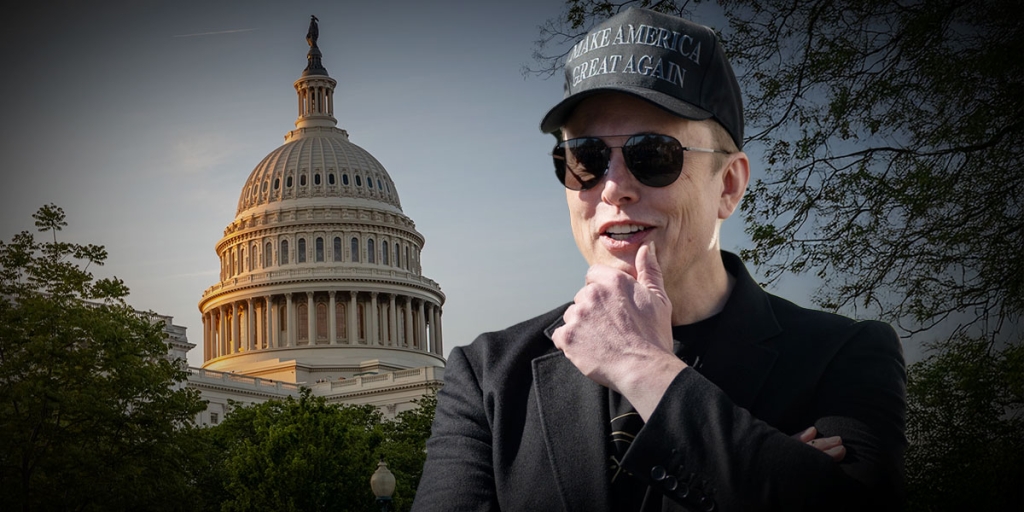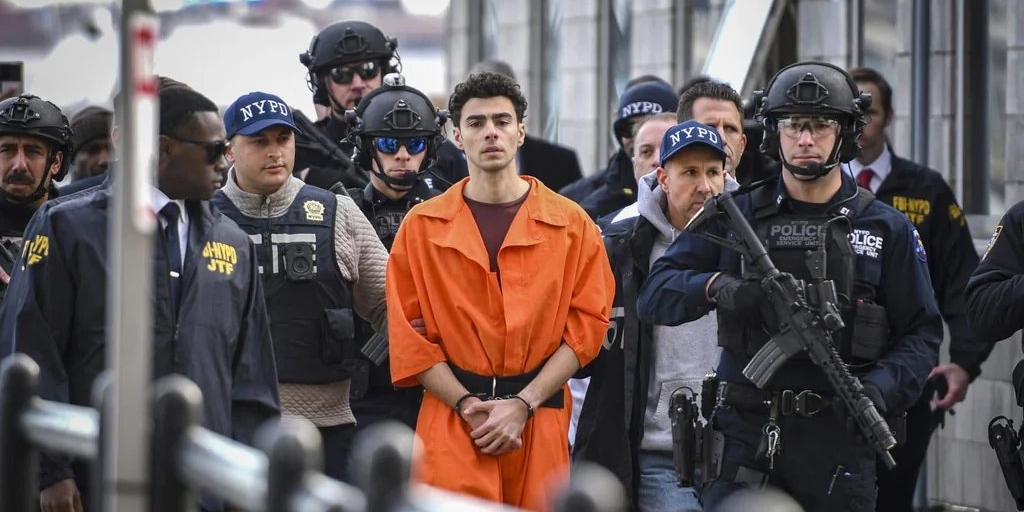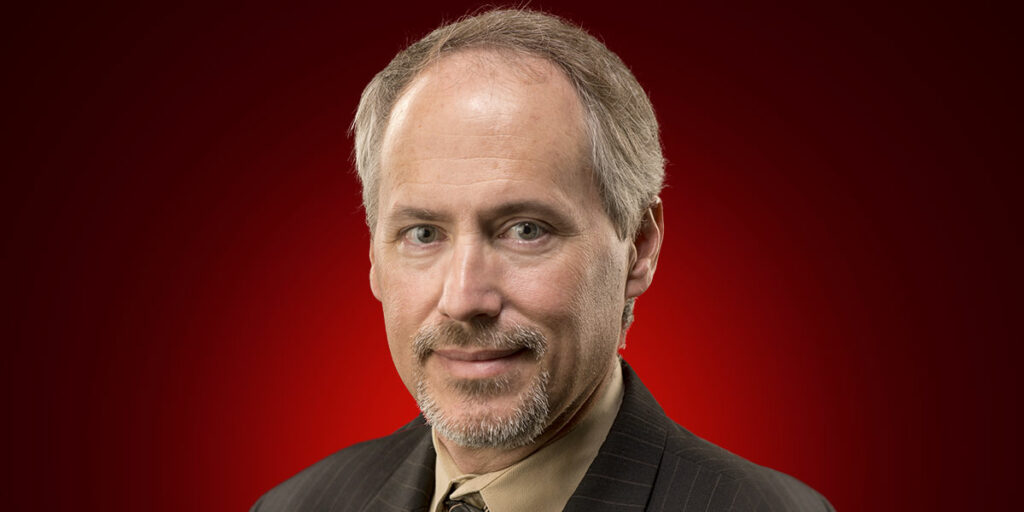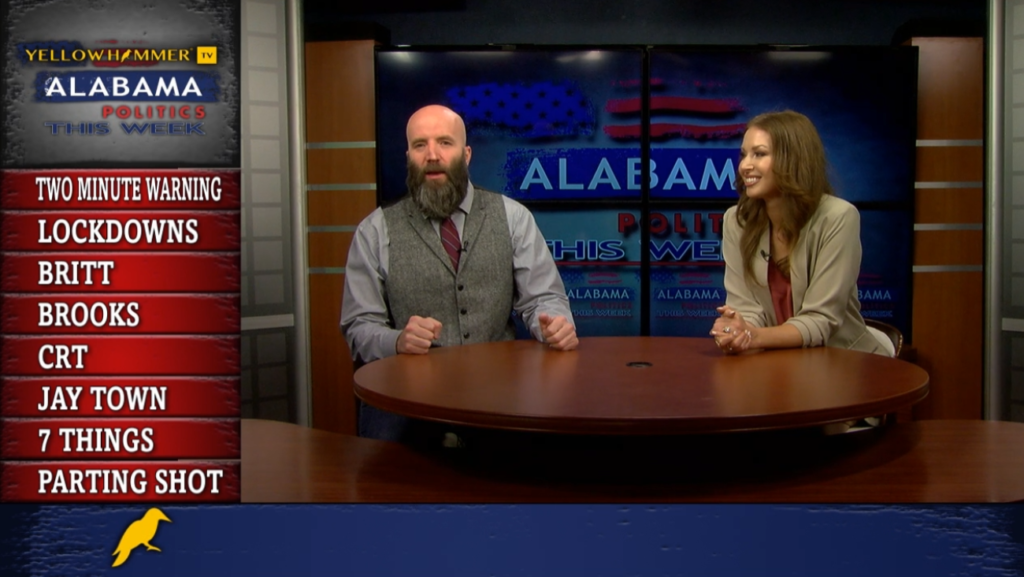A highlight of my Fourth of July is the Nathan’s Famous Hot Dog Eating Contest. This year Joey Chestnut devoured 76 hot dogs in 10 minutes, breaking his world record. This competition illustrates how commercialization allows people to earn a living fishing, playing cornhole, or even eating.
The hot dog competition is the premier event of Major League Eating (MLE), founded in 1997 by George and Richard Shea. The Shea brothers had achieved record publicity for Nathan’s contest and saw an entrepreneurial opportunity to brand multiple eating contests together.
MLE held over 70 events in 2019 and between winnings and endorsements, top eaters were earning upwards of $500,000 a year. Beyond holding events, MLE ranks top eaters and maintains a list of records, building fan interest.
Joey “Jaws” Chestnut is competitive eating’s GOAT. His MLE records include: Philly cheesesteaks, Krystal hamburgers (103 in 8 minutes), grilled cheese sandwiches, ice cream sandwiches, Twinkies (121 in 6 minutes), and funnel cake. But MLE is not a one-person show.
The current #2 ranked eater, Geoffrey Esper, holds records for brats, pork roll sandwiches, and tamales. MLE legend Sonya Thomas holds records for crawfish, lobster, crabcakes, and cheesecake (11 pounds in 9 minutes).
Following hot dog eating on ESPN on July 4 was the American Cornhole League (ACL). Yes, this tailgating game now has a league with a TV contract. The ACL was founded by entrepreneur Stacey Moore in 2016. Prior to the pandemic, the ACL sponsored 10,000 events, with a $1 million prize pool for major tournaments. Top players earned over $50,000 a year.
Dozens of leisure and recreation enterprises now exist, from fishing (the BASS Masters tour has long been big business) and poker to video gaming (eSports), fighting combat robots (Battlebots), and drone racing. What insights can economics offer on these enterprises?
Recreation becomes a commercial enterprise by generating revenue. An important threshold is when participants can make a living; Joey Chestnut quit his job as a construction manager in 2011. Professionals specialize, and specialization increases participants’ skill level.
The high skill level makes the activities or games more interesting. I enjoy watching pro bowlers make unbelievable shots occasionally and great shots routinely. We naturally appreciate outstanding human performances.
Details matter significantly in generating revenue. Some activities, like fishing, involve equipment. Equipment makers provide a natural revenue source. Sponsorship deals with top anglers constitute advertising. Televised fishing might also induce hobbyists to fish more often.
Other activities thrive by getting small amounts of money or time and attention – which ads convert into revenue – from many persons. Nathan’s Hot Dog Eating Contest draws TV audiences over 2 million. Attendance generates ticket revenue, creating value for ads at the venue and improving the viewing experience.
Serious fans offer other opportunities. They will read more content on a website or watch more and lengthier videos, boosting the value of ads. Passionate fans will also purchase merchandise.
Some activities allow hobbyists to match their skills against pros. Entry fees for these events a revenue source. The World Poker Tour lets local players compete against pros. The greater the interest in the tournaments (e.g., television coverage, million-dollar prizes), the more enthusiasts will pay to play.
Technology has facilitated commercialization. Cable TV increased the number of channels and the internet allows display of lots of information. Blogs and YouTube allow fans to share their passion for Battlebots or MLE. And search engines help fans find these blogs and videos.
Does all this play really matter? It certainly does for the individuals able to eat (Mr. Chestnut), play cornhole (Cody Henderson, or fish (Kevin VanDam) for a living. As John Tamny emphasizes in The End of Work, Americans many jobs no longer seem like work. I suspect that the value of playing for a living is substantial.
More and better entertainment options enrich our lives. Perhaps next year you will watch Nathan’s Hot Dog Eating Contest to see if someone dethrones Joey Chestnut. Higher quality leisure activities are one component of prosperity.
Daniel Sutter is the Charles G. Koch Professor of Economics with the Manuel H. Johnson Center for Political Economy at Troy University and host of Econversations on TrojanVision. The opinions expressed in this column are the author’s and do not necessarily reflect the views of Troy University.




